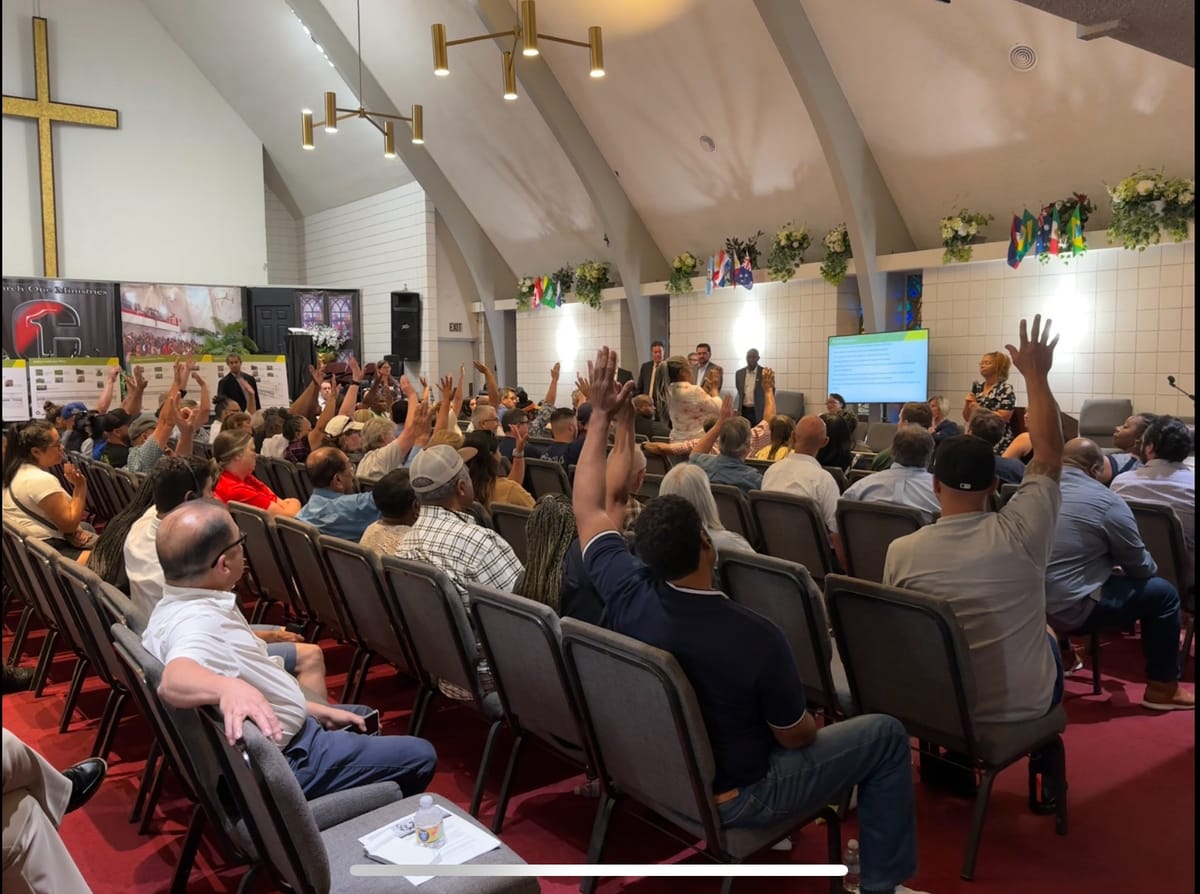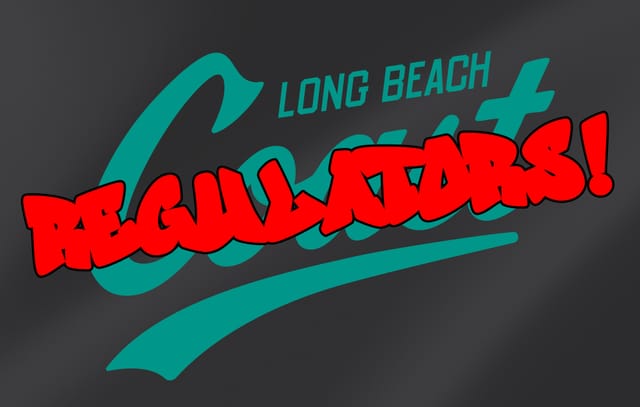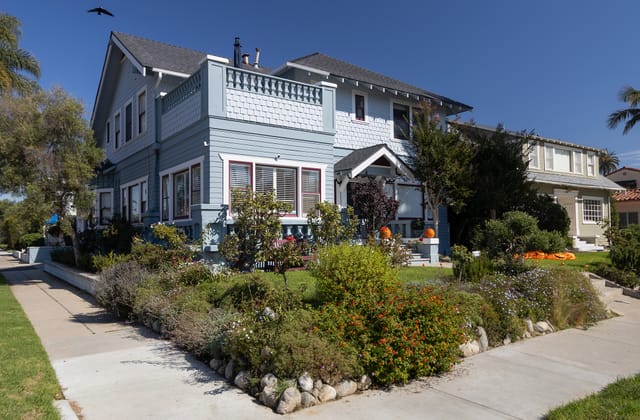Critically Speaking: Pulling the plug on freeway expansion
Why it’s important to show up for your community.

A big part of my job is attending public meetings.
That's meant long nights in city hall, churches (sometimes in their basements), park community buildings and even tents set up in the parking lots of parks to accommodate the overflow crowds who wanted to keep the city’s zoning closer to 1950 than 2018, when the controversial land use element update was adopted.
I’ve been to so many over the years that I lament going to any other type of meeting. I’m a big believer that “this meeting” can and should have been an email.
But showing up and advocating for your community is one of the most powerful things neighbors can do. The “strength in numbers” thing is real and it can provide city officials with a barometer for whether a project should move forward based on public sentiment.
I’ve seen this play out numerous times in my career but typically it involves residents of wealthy communities coalescing against things like affordable housing projects, zoning changes to allow for greater residential density and even a customs facility being built at the airport.
But sometimes, even communities who have historically been overlooked can get what they want. If they're loud enough.
I saw this in real-time at a meeting inside of a church this week where North Long Beach residents seemingly shut down a planned expansion of a portion of the 91 Freeway that runs through their neighborhoods.
Now, I’m not here to argue for or against freeway expansion. We have a guy on staff who does that and there’s plenty of literature out there suggesting that adding lanes will eventually increase traffic and pollution. It’s called “induced demand” and the New York Times wrote a great piece on it in 2023.
The arguments lobbed by neighbors of the proposed 91 Freeway project had less to do with the road conditions and more to do with the effects the project would have on their quality of life.
Communities across North Long Beach, where CalTrans and Los Angeles County Metro wanted to add an additional lane to allow the 710 Freeway to better connect to the 91 Freeway, score the highest on the CalEnviroScreen’s assessment of pollution in a given community.
Having a high score on CalEnviroScreen is not good and all of the census tracts along the route of the proposed project hold scores in the high 90s with multiple scores of 99.
The range of possible scores only goes to 100.
Being exposed to those levels of pollution contribute to a variety of health issues like asthma, low birth weights and other cardiovascular issues. And these were top of mind to most residents at the meeting, who railed against the ramifications for the people living around the 91 Freeway.
While North Long Beach has been historically overlooked—there was a brief period that the city didn’t have enough police officers dedicated to patrol the area in the 1990s—it has gotten better at organizing.
Neighborhood association leaders formed an alliance in recent years that has allowed them to advocate as a more unified voice rather than having fragmented, competing messages on projects in their communities. One of those leaders, Joni Ricks-Oddie, was elected to represent the area on the City Council in 2022.
Ricks-Oddie helped lead the meeting this week and eventually called for a vote from the room that resulted in a resounding “No” vote against the project. Will that demonstration of direct democracy Monday night result in the plug being pulled on the project?
Metro officials, including the chair of its board of directors, seem to think it will.
But the fact that the $174 million project is now in question is likely the result of persistent participation of the community members who opposed it.
Jeff Rowe, president of the Nehyam Neighborhood Association that's part of the alliance, said the alliance isn't a quest for power but an opportunity to work collaboratively with neighbors to create the best community possible for their children and grandchildren.
"I just think we’ve come to the belief and practice that we can do more collaboratively and reaching a consensus than arguing, bickering and squabbling until someone gives in," Rowe said.
"It's pretty amazing what you can do if everyone commits to that."
What happened this week
Well, it only took a few weeks but the Supreme Court’s ruling that will now allow cities to enforce bans on sleeping in public has translated into a directive to clear encampments in California. The directive came through an executive order from Gov. Gavin Newsom Thursday and applies to state agencies like CalTrans, which will be tasked with clearing unhoused people near highways, but Newsom called on cities to do more, too. Executive orders can’t force cities to fall in line but the political ramifications of not honoring the order could translate into a loss of funding and other real-life penalties for cities that don’t. To this point, Long Beach has signaled that it prefers to deal with the unhoused situation in the city with compassion, but the change in tenor in Sacramento could shake up how the city deals with the issue going forward.
Something to keep an eye on
It’s been a sleepy month at City Hall as the City Council opted for the unprecedented move—in my time—of taking nearly an entire month off from meetings. However, budget season is about to descend upon us and that will start with the likely release of the proposed spending plan sometime next week. Long Beach has some big financial questions to answer and its largest looming issue got pushed forward when a challenge to a statewide oil operations buffer law was pulled from the ballot. The city is projecting a deficit of about $23.5 million for the fiscal year starting in October, something city officials believe can be addressed without significant cuts to staffing of services. But the loss of oil revenue and the apparent lack of support by the community for a new tax to help replace that soon-to-be-dwindling revenue source could spell real trouble for the city’s financial health in the years ahead. If you want to be part of the budget discussion here's a list of community meetings you can attend.
We need your support.
Subcribe to the Watchdog today.
The Long Beach Watchdog is owned by journalists, and paid for by readers like you. If independent, local reporting like the story you just read is important to you, support our work by becoming a subscriber.





